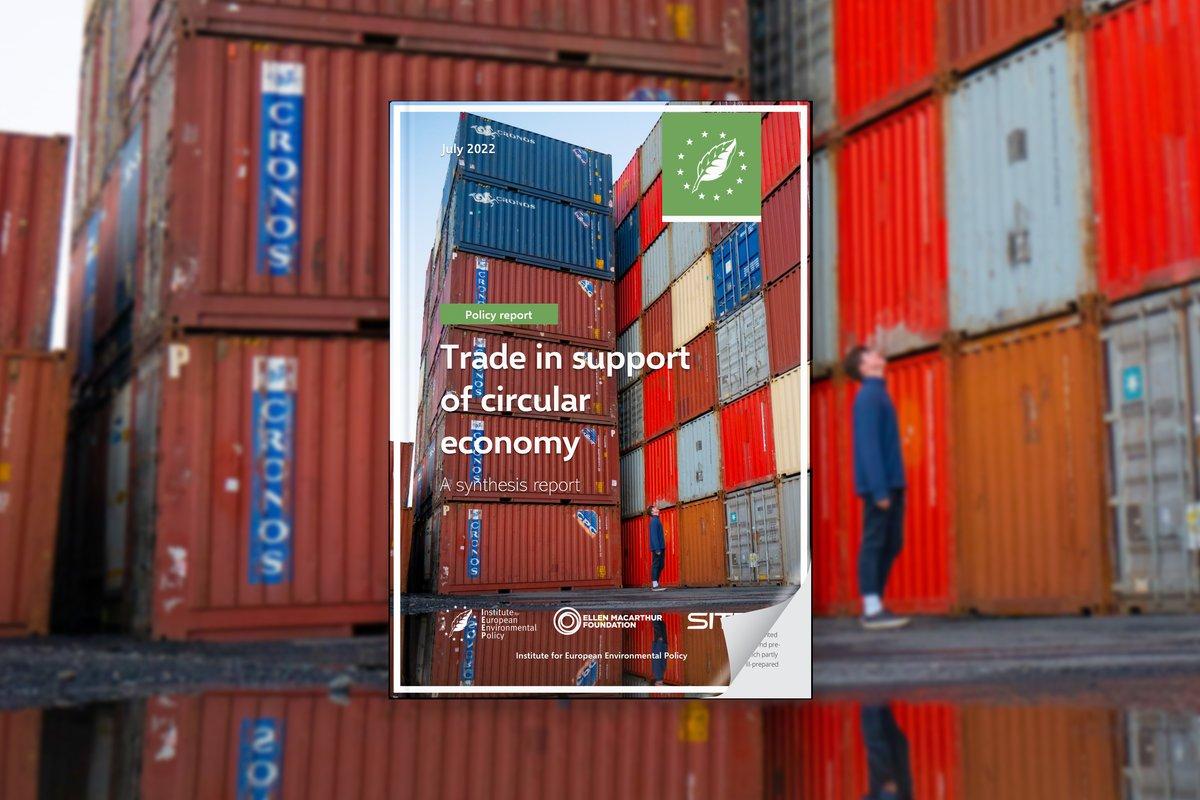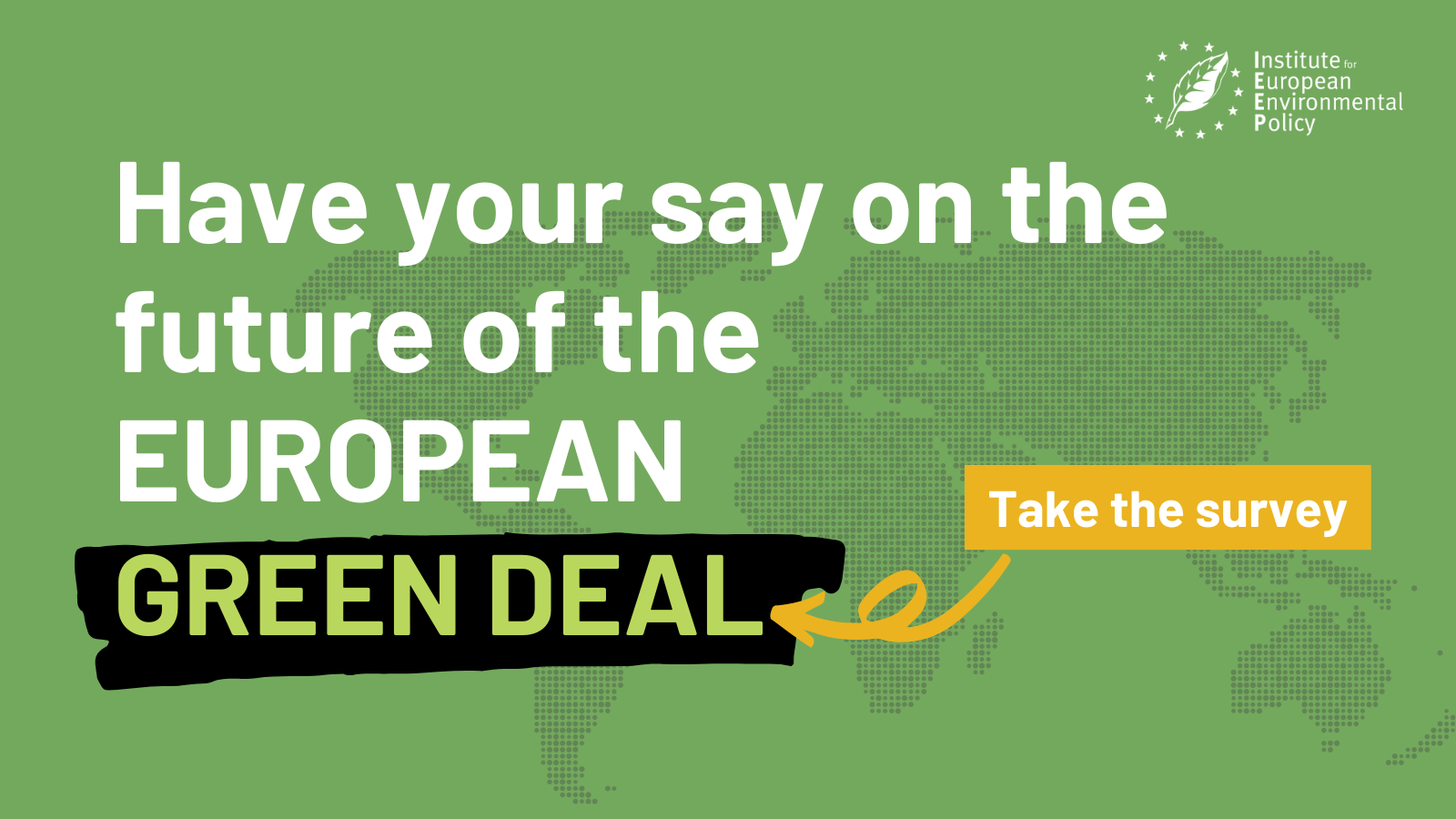AUTHORS: Eline Blot, Antoine Oger, Emma Watkins
The EU is moving ahead on its ambition to develop and implement a European circular economy, as ambitioned by the new Circular Economy Action Plan (CEAP) and its subsequent proposals. However, this objective is inherently intertwined with the rest of the global trading system, in addition to continuous geopolitical developments which risk complicating an already complex transition.
This policy report assesses how the EU can support the transition to and uptake of the global circular economy through its trade frameworks and international cooperation.
The EU’s CEAP puts forward several initiatives to facilitate cooperation with trade partners on the circular economy, for example, by ensuring its free trade agreements (FTAs) reflect the objectives of the circular economy and by addressing knowledge and governance gaps through dialogues in the Global Alliance on Circular Economy and Resource Efficiency (GACERE).
Circular economy is still rarely explicitly mentioned across the EU’s bilateral trade frameworks, which govern around 40% of the EU’s total trade. Notwithstanding, efforts for cooperation on circular economy between the EU and its trade partners is ramping up.
At the multilateral level, the EU supports discussions on the nexus of trade and environmental sustainability, such as at the WTO’s Ministerial Conferences and the Trade and Environmental Sustainability Structured Discussions (TESSD).
Undoubtedly, the circular economy is an essential concept to develop future-proof, sustainable and resilient supply chains, as well as to tackle global challenges, including climate change, biodiversity loss, waste, and pollution.
Considering the global dimension of the circular economy, trade and trade policy can play an instrumental role in supporting the development and uptake of the global circular economy.
The findings of this policy report are supported by research conducted from this project’s four case studies covering trade and cooperation frameworks and circular economy efforts between the EU and Canada, China, Mercosur, and Nigeria. This policy report puts forward recommendations on how the EU can support the transition to and uptake of the circular economy through its trade frameworks and international cooperation.
Firstly, the EU has several trade frameworks in place, two of which are discussed in this report, namely the Generalised Scheme of Preferences (GSP) Regulation and bilateral FTAs. A brief synopsis of our recommendations for the EU to pursue progress on the uptake of a global circular economy include:
Reinforcing sustainability and circularity in its trade agreements, which can be achieved by:
- Strengthening the Trade and Sustainable Development (TSD) Chapters for circularity, by including more explicit commitments to cooperation on circularity and securing the Paris Agreement as essential element of all trade agreements going forward.
- Unboxing sustainability from the TSD Chapters and integrating language on circularity, and cooperation on the circular economy, throughout the trade agreement.
Leveraging trade agreements as a tool for cooperation on the circular economy, which can be done by:
- Operationalising existing commitments for cooperation and dialogue on environmental protection to exchange knowledge regarding circular economy legislation, data collection methods, monitoring frameworks and begin to close data gaps on the flow of material and energy resources.
- Empowering stakeholders in the EU and the trade partner country, including government actors, industry representatives, civil society organisations as well as experts to allow for detailed discussion on the trade implications of the development and implementation circular economy policies.
- Ensuring the organisers of these discussions are provided sufficient resources to begin to address the shift to circularity.
Secondly, at the international level, the EU must work towards developing a common understanding of circularity, both in a theoretical and practical manner, while supporting a fair and sustainable transition to a global circular economy, by:
Taking forward multilateral dialogues and cooperation on circular economy, by:
- Championing discussions at the WTO’s TESSD and the GACERE in cooperation with other like-minded trade partners on circular economy and environmental sustainability through trade, to build a common understanding of the circular economy and circular goods, and the potential implications for the global trading system.
- Working together in the development, harmonisation, and recognition of standards for circularity, as well as promoting cooperation for mutual recognition of standards and trade facilitation efforts with the ISO, as well as with the World Customs Organisation and the Basel Convention Secretariat to ensure sustained progress on codifying circular goods such as environmentally hazardous waste in international trade.
- Backing initiatives such as the World Circular Economy Forum, which form an indispensable platform for evidence-based public-private discussion on circularity and its global implications on trade and supply chains.
Assisting the least developed countries in the transition to a circular economy by:
- Embedding circularity in development cooperation schemes such as Aid for Trade, which aim to assist countries facing capacity constraint pertaining to trade regulations and infrastructure.
- Accounting for the unequal accumulation of and spread of circularity benefits, that risk perpetuating the gap between developed and developing countries.
For a more detailed, country-specific assessment and recommendations, check the case studies for:
The project has been funded by Finnish Innovation Fund Sitra, as a part of Sitra’s future-oriented work that aims at a transition to a carbon-neutral circular economy.



